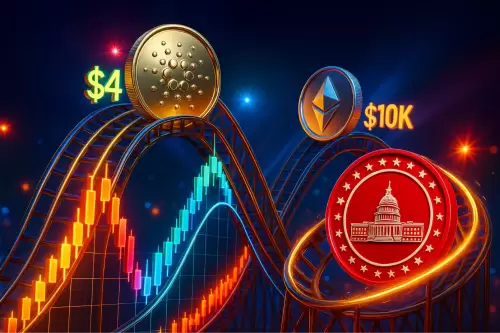 |
|
 |
|
 |
|
 |
|
 |
|
 |
|
 |
|
 |
|
 |
|
 |
|
 |
|
 |
|
 |
|
 |
|
 |
|
Cryptocurrency News Articles
Japan's Core Inflation Rises to 3.5% in April, the Highest Since Early 2023, Fueled by Domestic Prices and Lingering Trade Tensions
May 24, 2025 at 02:00 am
The increase surpasses forecasts and keeps inflation well above the Bank of Japan's 2% target, complicating interest rate decisions. A key driver has been the surge in rice prices, which hit a record 4,268 yen ($28) for a 5kg bag.

Japan's core consumer prices rose 3.5% in April from a year earlier, government data showed on Wednesday, the highest reading since early 2023, as domestic demand remained robust and trade tensions with the United States kept up pressure on inflation.
The increase in the consumer price index (CPI), excluding fresh food prices, came above a median forecast for a 3.3% gain and follows a 3.4% rise in March. It also keeps inflation well above the Bank of Japan's (BOJ) 2% target, complicating interest rate decisions for the central bank.
A key driver of inflation has been the surge in rice prices, which hit a record 4,268 yen ($28) for a 5 kg (11 lb) bag earlier this year.
The government has been releasing rice from stockpiles and selling it at auctions in a desperate attempt to lower prices. But only 41% of the rice sold at government auctions has reached wholesalers, lagging the administration's goal of a 70% reach by May.
Prime Minister Shigeru Ishiba has vowed to bring rice prices below 4,000 yen.
The U.S. is set to impose a 24% reciprocal tariff on July 1 on about $20 billion worth of Japanese products in response to Japan's tariffs on U.S. products, a move that will further escalate trade tensions between the two allies.
The tariff list includes a variety of products such as motorcycles, machine tools and some food items, and comes after the two sides failed to reach a broader trade agreement this year.
The new tariffs will add to the existing tariffs of 25% on steel, 10% on autos and 10% on aluminum that the U.S. has imposed on Japan since last year.
Some economists expect inflation to ease in coming months with the yen showing strength and energy subsidies set to expire.
"We expect energy-related inflation to moderate further in April, as government subsidies for gasoline and kerosene are set to expire this month," said Harumi Taguchi, economist at the Tokyo RDE Research Center.
But others, like Marcel Thieliant of Capital Economics, believe the BOJ could hike interest rates as early as October if inflation stays high and core private consumption shows strength.
"With inflation remaining sticky and private consumption still showing strength, we think the BOJ could hike interest rates as early as October," Thieliant wrote in a note.
The yen ticked up to 143.80 after the data, while equities rose slightly, with the Nikkei index gaining 0.2%. Bond yields dipped following the reading.
Disclaimer:info@kdj.com
The information provided is not trading advice. kdj.com does not assume any responsibility for any investments made based on the information provided in this article. Cryptocurrencies are highly volatile and it is highly recommended that you invest with caution after thorough research!
If you believe that the content used on this website infringes your copyright, please contact us immediately (info@kdj.com) and we will delete it promptly.






























































